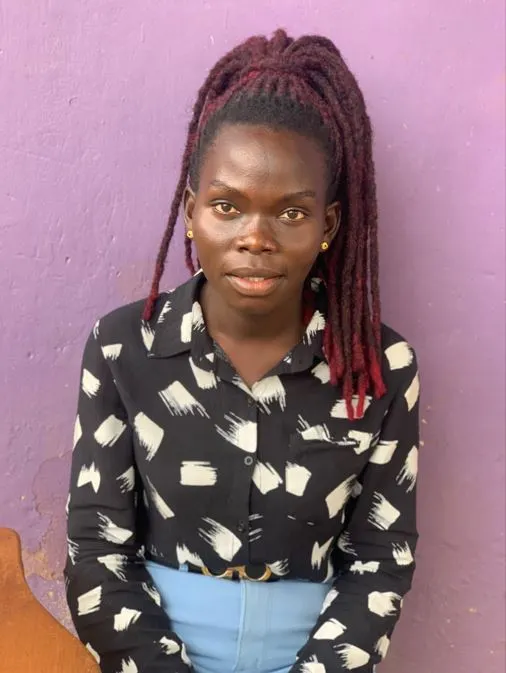By Kefa Senoga
In 21 years, South Sudanese refugee Gloria Clinton Kani has witnessed miracles countless times. Each time that she feels she has reached the end of the road, God gives her a new path. The latest revitalization was winning a scholarship for her degree program at Uganda Christian University (UCU).
This, then, is part of her story.
When she completed Senior Six, Kani lobbied organizations, including the Ugandan government, for scholarship opportunities.
“After bringing my plight to light, I started getting calls from people, informing me of the available scholarship opportunities,” Kani said. One such opportunity that seemed promising was the scholarship offered by Finn Church Aid Uganda. However, Kani’s hope was crushed in January this year when she learned that her first application was not successful. When she re-applied, she was.
Finn Church Aid Uganda is now paying Kani’s fees for the university accommodation and tuition for her Bachelor of Social Work and Social Administration course at UCU.
Citing her frequent visits to the chapel at UCU, Kani says that the institution has enabled her to rebuild a relationship with God, because of its deep-rooted Christian values.
Life in a refugee camp
Kani, a daughter of two South Sudan nationals, was born in 2001, in Koboko, northern Uganda. Kani’s parents were among escapees of the southern Sudan civil war between the central government and the Sudan People’s Liberation Army. That war eventually led to a cessation of South Sudan from Sudan, and the former’s eventual independence in 2011. However, despite the closure, peace has eluded South Sudan.
In 2007, when temporary normalcy returned to southern Sudan, there was repatriation of the Sudanese refugees like Kani’s family that was in a Ugandan camp. Kani and her family were among the people who returned to their country. Kani’s home area is in Yei state, in the southern part of South Sudan.
However, the war has kept Kani from fully feeling the warmth of her cradle land. In 2013, Kani and some of her family members were again back in Uganda after fresh fighting erupted in her home country.
“When our father abandoned us, our maternal uncle relocated us to Uganda so we could continue with our studies,” she said. Her mother, however, was not part of the people who came to Uganda at that time.
In 2016, Kani’s uncle died in South Sudan, prompting the rest of the family members who had stayed behind to relocate to Uganda. Among them was Kani’s mother.
“We moved into Bidi Bidi refugee settlement in northern Uganda, but I spent two terms at home because my benefactor had been killed, so I had no other source of money for tuition,” Kani narrates. She was in Senior Three at the time. Her cousin who had completed Senior Six was designated to help some of the family members. He took up the responsibility of paying Kani’s school fees using proceeds from his job as a shopkeeper for a Ugandan family.
However, there were instances when the tuition fees were beyond what Kani’s cousin could afford. In Senior Four third term, for instance, Kani got financial assistance from the mother of a friend while for two terms in Senior Six, Kani’s friend in the camp came to her rescue. By that time, her cousin had lost his job at the shop. The shop was one of the businesses closed due to a Covid-induced lockdown in Uganda.
Kani has been able to build for her mother a house in the settlement. She built using proceeds from a short term job she got during her Senior Six holidays, working as a translator for a Non-Governmental Organization.
As she embarks on her degree course, Kani is fully aware of the financial challenges – taking care of her siblings – ahead of her after the studies. But for now, she focuses on the course, to get the best possible grades, which can boost her abilities to get a job after school and meet those obligations.


